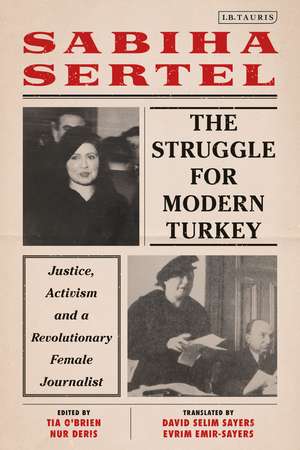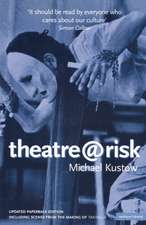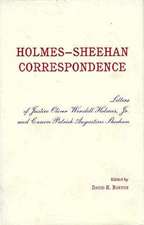The Struggle for Modern Turkey: Justice, Activism and a Revolutionary Female Journalist
Autor Sabiha Sertel Editat de Tia O'Brien, Nur Deris Traducere de David Selim Sayers, Evrim Emir-Sayersen Limba Engleză Hardback – 26 iun 2019
| Toate formatele și edițiile | Preț | Express |
|---|---|---|
| Paperback (1) | 195.38 lei 6-8 săpt. | |
| Bloomsbury Publishing – 26 iun 2019 | 195.38 lei 6-8 săpt. | |
| Hardback (1) | 570.28 lei 6-8 săpt. | |
| Bloomsbury Publishing – 26 iun 2019 | 570.28 lei 6-8 săpt. |
Preț: 570.28 lei
Preț vechi: 816.83 lei
-30% Nou
Puncte Express: 855
Preț estimativ în valută:
109.14€ • 118.51$ • 91.67£
109.14€ • 118.51$ • 91.67£
Carte tipărită la comandă
Livrare economică 23 aprilie-07 mai
Preluare comenzi: 021 569.72.76
Specificații
ISBN-13: 9781788313575
ISBN-10: 1788313577
Pagini: 288
Dimensiuni: 156 x 234 mm
Greutate: 0.58 kg
Editura: Bloomsbury Publishing
Colecția I.B.Tauris
Locul publicării:London, United Kingdom
ISBN-10: 1788313577
Pagini: 288
Dimensiuni: 156 x 234 mm
Greutate: 0.58 kg
Editura: Bloomsbury Publishing
Colecția I.B.Tauris
Locul publicării:London, United Kingdom
Caracteristici
This is the first translation of her memoirs in English and is complete with editorial matter including an introduction, annotations, glossary, timeline and photographs
Notă biografică
Sabiha Sertel (1895-1968) is considered the first professional female journalist in modern Turkey. Tia O'Brien is an award-winning reporter and editor based in San Francisco. Her journalism focuses on politics, business and technology, Turkey and consumer affairs. Nur Deris is a freelance translator and interpreter and worked most recently at the European Masters in Conference Interpreting at Bosphorus University, Istanbul.David Selim Sayers is a Founding Member of the Paris Institute for Critical Thinking (PICT) and a Lecturer at the Institut National des Langues et Civilisations Orientales (INALCO), Université Sorbonne Paris Cité. Evrim Emir-Sayers is a Founding Member of the Paris Institute for Critical Thinking (PICT) and worked as a Lecturer in Philosophy at San Francisco State University.
Cuprins
Figure TitlesPrefaceIntroductionTranslators' NoteBiographical and Historical TimelineGlossary of TermsAcknowledgementsAuthor's NoteDedication1. Introduction To Life2. In America3. The Return Home4. Publishing Resimli Ay5. Life In Politics6. Turkey In The War Years7. Turkey At The End Of The War8. The Görüsler Journal9. The Tan Incidents10. The Founding Of The Democrat Party And The Arrests11. The Human Rights Association12. The Provocations Continue13. To My Countrypeople
Recenzii
Valuable for its descriptions of the government's continual harassment of the Sertels ... It conveys the amount of energy, dedication and inventiveness required to create media space for dissent in a political environment where 'simply speaking out on behalf of workers' rights was already considered communism' (p. 110). As Turkey continues to imprison journalists at a record pace, these skills are just as necessary for them today.
A suitable monument to [Sertel's] memory.
The Struggle for Modern Turkey is a timely and fascinating look into the life of an amazing person.
This astonishing book does more than introduce us to one of the most extraordinary Turkish women of her generation. It is full of stories and insights that shed new light on the turbulent first half of the twentieth century. From now on, no one will be able to write social, cultural or political history of Turkey during that period without referring to this fascinating memoir.
The Struggle for Modern Turkey is a vivid translation of a phenomenal work of personal and political history. The life of Sabiha Sertel--a pioneering woman, pioneering Turk, pioneering socialist activist, and pioneering journalist--and the history she tells, will move and inspire readers. It will also unsettle myriad assumptions and truisms about life and politics in twentieth-century Turkey. Her courage and insight burst forth from these pages, and invite us into her struggle, which is, after all, a universal struggle for justice.
Sabiha Sertel's memoirs have long been a unique and crucial view onto the dynamism and tumult of Turkey's 20th century. The appearance now of a careful, eloquent, and accessible English translation will open her expansive vista on Turkish politics, society, and culture to new audiences, and ought to be a cause for celebration.
The story of Turkey's first female journalist, Sabiha Sertel, is not only about Turkey as it went through the pains of establishing as a modern country and certainly is not confined to its setting of the decades that led up to and follow the second World War. This is the story of a woman who had to stood up against racist and sexist slurs emanating from her male colleagues. This is the story of a journalist who had to face imprisonment, endured life- threatening attacks from the far-right and forced to live in exile. At a time when press freedom and truth itself are under attack around the world, Sertel's memoir provides timely lessons for us journalists and for anyone who cares for free speech and press. It is both a story of hope and courage but also of despair as it displays that time does not always bring progress but moves in a cyclical motion with the same horrifying fall backs lurking ahead for a liberal democratic order.
The publication of Sabiha Sertel's memoir, Roman Gibi, in English is a major contribution to fields of Turkish studies, feminist historiography, literary studies, and human rights. Sabiha Sertel's memoir makes accessible to English readers for the first time insights into an extraordinary woman's life in the late Ottoman Empire and Turkish republic. It provides an intriguing view of the lives of progressive, leftist social elites engaged in efforts to transform the young country into a more egalitarian and democratic nation-state. The translation of Sertel's memoir is remarkably timely as well, given renewed authoritarian repression of intellectuals and journalists in 21st Century Turkey.
Sertel's memoirs are not only a major contribution to the history of Turkish political thought ... but are also one of the key sources to the intellectual milieu in the Turkish Republic's formative years from a rare female journalist's perspective. ... the English translation of Sertel's memoirs is a significant contribution to the visibility of women's voices and achievements.
A suitable monument to [Sertel's] memory.
The Struggle for Modern Turkey is a timely and fascinating look into the life of an amazing person.
This astonishing book does more than introduce us to one of the most extraordinary Turkish women of her generation. It is full of stories and insights that shed new light on the turbulent first half of the twentieth century. From now on, no one will be able to write social, cultural or political history of Turkey during that period without referring to this fascinating memoir.
The Struggle for Modern Turkey is a vivid translation of a phenomenal work of personal and political history. The life of Sabiha Sertel--a pioneering woman, pioneering Turk, pioneering socialist activist, and pioneering journalist--and the history she tells, will move and inspire readers. It will also unsettle myriad assumptions and truisms about life and politics in twentieth-century Turkey. Her courage and insight burst forth from these pages, and invite us into her struggle, which is, after all, a universal struggle for justice.
Sabiha Sertel's memoirs have long been a unique and crucial view onto the dynamism and tumult of Turkey's 20th century. The appearance now of a careful, eloquent, and accessible English translation will open her expansive vista on Turkish politics, society, and culture to new audiences, and ought to be a cause for celebration.
The story of Turkey's first female journalist, Sabiha Sertel, is not only about Turkey as it went through the pains of establishing as a modern country and certainly is not confined to its setting of the decades that led up to and follow the second World War. This is the story of a woman who had to stood up against racist and sexist slurs emanating from her male colleagues. This is the story of a journalist who had to face imprisonment, endured life- threatening attacks from the far-right and forced to live in exile. At a time when press freedom and truth itself are under attack around the world, Sertel's memoir provides timely lessons for us journalists and for anyone who cares for free speech and press. It is both a story of hope and courage but also of despair as it displays that time does not always bring progress but moves in a cyclical motion with the same horrifying fall backs lurking ahead for a liberal democratic order.
The publication of Sabiha Sertel's memoir, Roman Gibi, in English is a major contribution to fields of Turkish studies, feminist historiography, literary studies, and human rights. Sabiha Sertel's memoir makes accessible to English readers for the first time insights into an extraordinary woman's life in the late Ottoman Empire and Turkish republic. It provides an intriguing view of the lives of progressive, leftist social elites engaged in efforts to transform the young country into a more egalitarian and democratic nation-state. The translation of Sertel's memoir is remarkably timely as well, given renewed authoritarian repression of intellectuals and journalists in 21st Century Turkey.
Sertel's memoirs are not only a major contribution to the history of Turkish political thought ... but are also one of the key sources to the intellectual milieu in the Turkish Republic's formative years from a rare female journalist's perspective. ... the English translation of Sertel's memoirs is a significant contribution to the visibility of women's voices and achievements.














